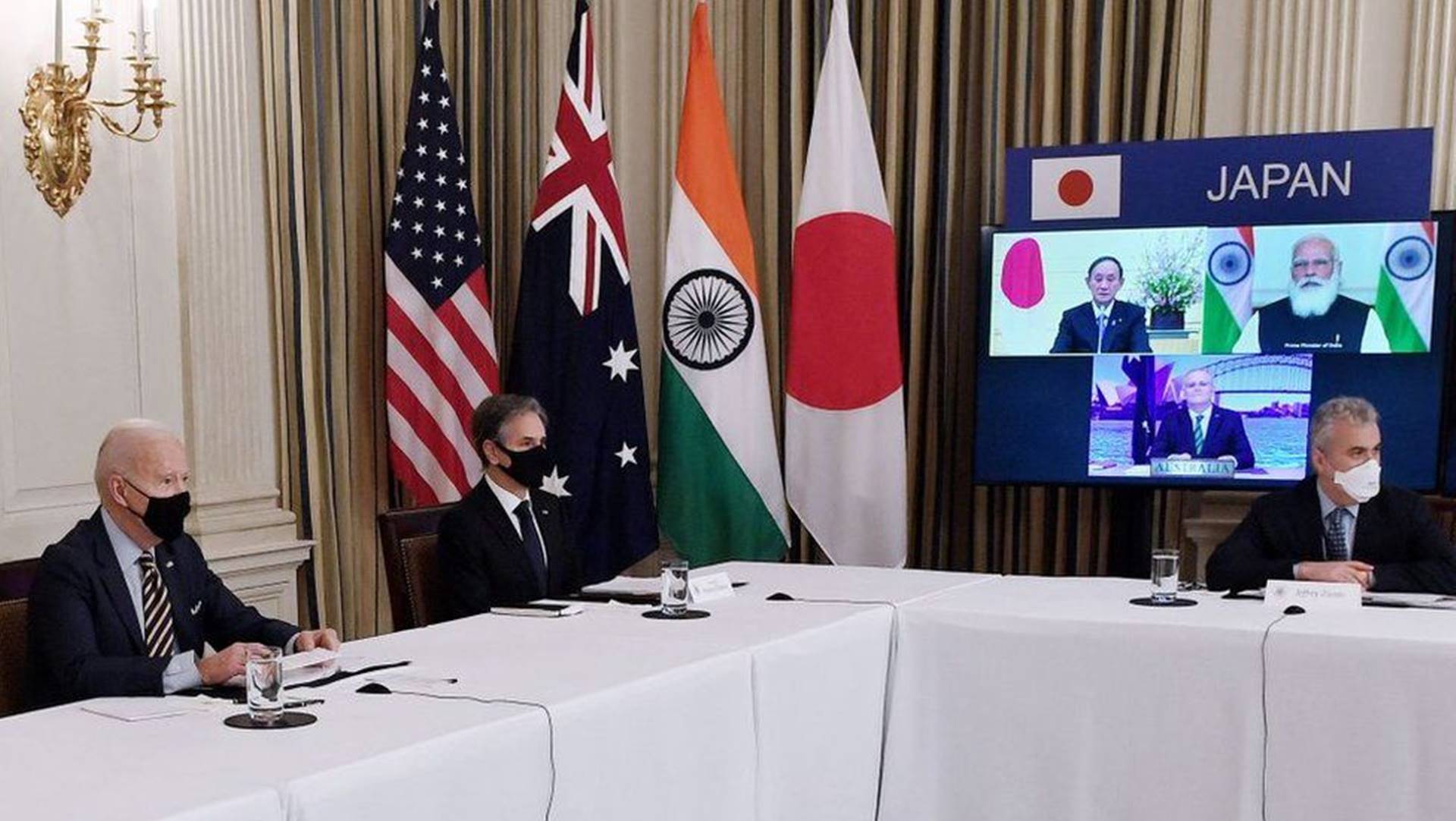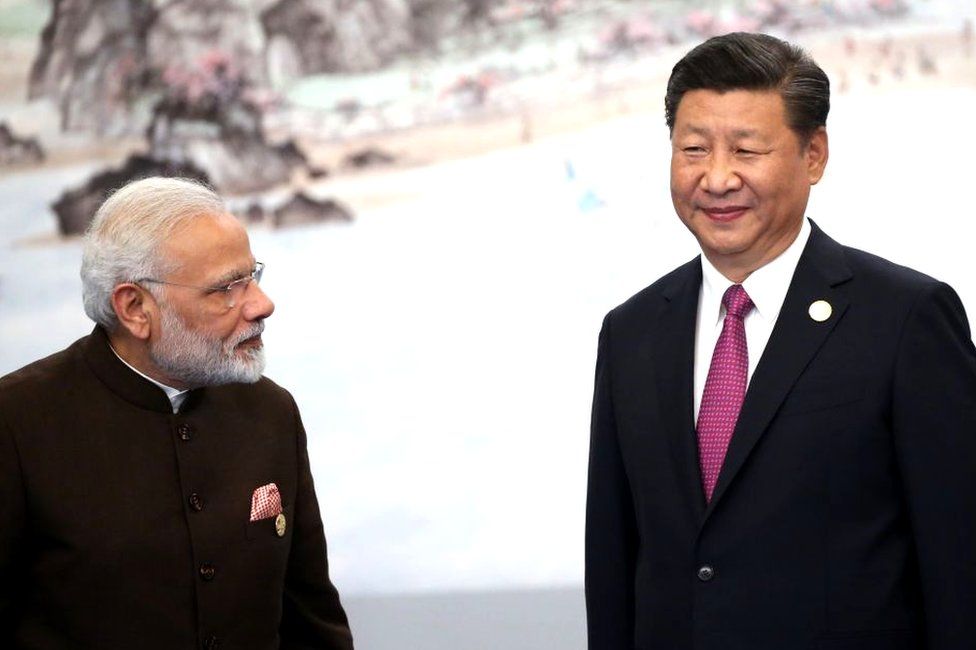Like a lot of meetings this past year and a half, the first summit of the ‘Quad’ was virtual

The leaders from the group, which comprises the US, India, Australia, and Japan, connected online from their various nations back in March and agreed to cooperate on delivering one billion doses of Covid-19 vaccine to Asian countries by the end of 2022.
Now the Quad will hold its first in-person meeting, in Washington DC on Friday, amid the fallout from a controversial new global joint security pact announced last week.
That pact, known as August, was signed by the US, UK, and Australia, and will give Australia access to US nuclear-powered submarine technology for the first time.
Alaska – A Strategic Military Asset Against China, Russia
So how does Aukus affect the Quad? Leaders from both these forums avoided mentioning China directly, but it’s widely believed that their cooperation efforts are designed to counter China’s influence in the Indo-Pacific region.
Indian Prime Minister Narendra Modi will likely be mindful of China when he meets his fellow Quad leaders. India is the only country in the group that shares a border with China, and the border is bitterly disputed at several points. Troops from the two nations were involved in a deadly clash at one such point last year.

India has been a keen participant in multilateral forums in recent years – including some in which China is also a member. Analysts say it stands to gain from the existence of both Aukus and the Quad.
The Quad meeting could allow Delhi to develop a joint worldview with the three partners on areas of shared concern, like countering China’s influence in the region, said Pratyush Rao, director for South Asia at the Control Risks consultancy.
“The meeting can lay the foundation for longer-term cooperation on the development of shared standards on critical technologies, military cooperation, and pooling of resources to finance infrastructure projects in the region,” Mr. Rao said.
China plans to send its first crewed mission to Mars in 2033 and build a base there
The two forums, Aukus and the Quad would also complement one another by demonstrating the countries’ commitment to regional security in the Indo-Pacific, he said.
The Quad is expected to announce deeper cooperation on fighting climate change, cyber security, infrastructure development, and sharing of emerging technologies like 5G infrastructure. Michael Kugelman, deputy director of the Wilson Center think-tank in Washington, said the group had already shown it could provide tangible outcomes, like coming together to make and distribute Covid vaccines.
“India will be comfortable with such outcomes as such decisions are not very provocative for China,” Mr. Kugelman said.

But analysts say that a few deeper issues remain unresolved for India within the Quad framework. The main ones are India’s own challenges in the Indian Ocean and its border disputes with China. India has long been uncomfortable with China’s investments in Pakistan-administered Kashmir, driven by China’s Belt and Road Initiative (BRI), and now Beijing’s growing influence in Afghanistan has also been causing concerns in Delhi.
So how much can the Quad help India in its security challenges? India’s chief concern should be safeguarding its maritime interests, said former Indian diplomat Jitendra Nath Misra.
China is growing more worried about how surging commodity prices will affect business profits
“India needs to ask some hard questions about how the group can help in safeguarding its interests in its broader maritime neighborhood where China has been establishing its presence for years,” Mr. Misra said.
Beyond the Quad summit, Mr. Modi will also hold his first face-to-face meeting with US President Joe Biden on Friday. The meeting will be an opportunity for the two leaders to get to know each other better.
Mr. Modi and Mr. Biden may not talk publicly about China, but experts say the leaders are likely to discuss Beijing’s assertiveness in the Indo-Pacific, and also in Afghanistan.

India will likely seek reassurance from the US about preventing the Taliban from allowing militant groups like Jaish-e-Mohammad and Lashkar-e-Taiba to use Afghanistan to plan attacks against India. Most countries are still struggling to define the terms of engagement with the Taliban, and India will be keen to exchange on the issue as it formulates its own policy.
Some of the other sticking points include trade disputes and the unresolved matter of India’s purchase of the S-400 missile defense system from Russia. The US is yet to clarify whether it will give India any relief from sanctions for the purchase.
This bilateral meeting may not yield any tangible solutions to those issues. But it should allow Mr. Modi and Mr. Biden to move beyond existing quarrels and plan a new roadmap.
And the two countries will likely look to cooperate in other areas, Mr. Rao said, like leveraging US vaccine stocks and Indian production capabilities to support the Gavi and Covax vaccine initiatives.
“They will also discuss tackling climate change through joint investments in clean technologies and sustaining the already robust cooperation on defense and security issues,” he added.
Napomena o autorskim pravima: Dozvoljeno preuzimanje sadržaja isključivo uz navođenje linka prema stranici našeg portala sa koje je sadržaj preuzet. Stavovi izraženi u ovom tekstu autorovi su i ne odražavaju nužno uredničku politiku The Balkantimes Press.
Copyright Notice: It is allowed to download the content only by providing a link to the page of our portal from which the content was downloaded. The views expressed in this text are those of the authors and do not necessarily reflect the editorial policies of The Balkantimes Press.
